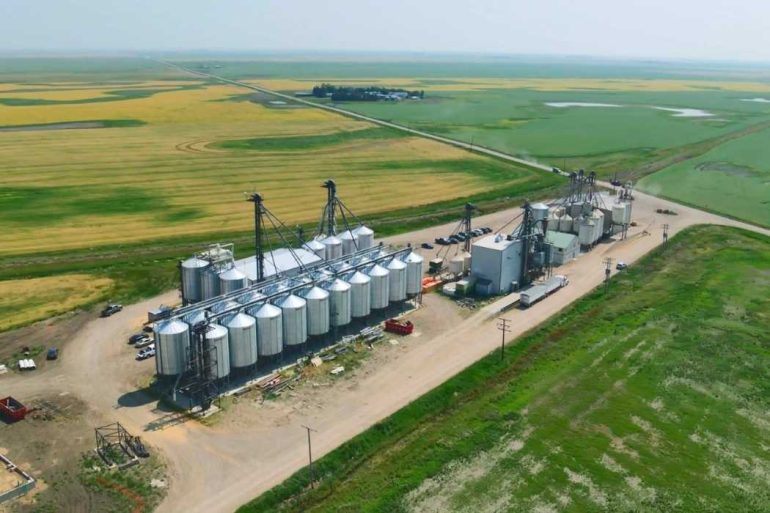The AI Times is a weekly newsletter covering the biggest AI, machine learning, big data, and automation news from around the globe. If you want to read A|I before anyone else, make sure to subscribe using the form at the bottom of this page.
Protein Industries Canada secures $30 million from Pan-Canadian AI Strategy, launches AI-focused co-investment program (BETAKIT)
The new initiative from PIC is intended to support projects that use artificial intelligence (AI) to expand Canada’s plant-based food, feed, and ingredients ecosystem. The first round of project intakes is open from September 14 until October 26. A second round will be open in early 2023.
Intel, Arm and Nvidia propose new standard to make AI processing more efficient (TECHCRUNCH)
Many in the industry — including Intel, Arm and Nvidia — are coalescing around FP8 (8 bits) as the sweet spot. In a blog post, Nvidia director of product marketing Shar Narasimhan notes that the aforementioned proposed format, which is FP8, shows “comparable accuracy” to 16-bit precisions across use cases including computer vision and image-generating systems while delivering “significant” speedups.
Mila, Intel expand partnership to use AI for addressing climate change, digital biology (BETAKIT)
Led by Canadian AI luminary Yoshua Bengio, Mila has a community of more than 900 researchers covering fields such as generative models, natural language processing, and computer vision. The institute was created in 1993 as a result of a partnership between the Université de Montréal, McGill University, Polytechnique Montréal, and HEC Montréal.
Inventor Behind Amazon’s Alexa Raises Funds for AI Startup (BNN BLOOMBERG)
“Everyone is locked onto a path of machine learning with big neural networks,” Unlikely AI CEO William Tunstall-Pedoe said in an interview. “It is very unclear that this path will lead to a generally intelligent machine. We are taking a contrarian fresh look at doing this.”
Join us at the Metro Toronto Convention Center (MTCC) in Toronto on October 6-7, 2022, to explore AI, Big Data, Cloud, and Cybersecurity.
With more than 250 presentations, 100 exhibiting companies, and 5 000 attendees, Big Data & AI Toronto offers a unique opportunity to learn about the latest trends and network with all Big Data and Artificial Intelligence (AI) professionals in USA and Canada.
Insurtech ProNavigator secures $10 million to power US expansion (BETAKIT)
Having secured the capital throughout this year, with a final close on September 1, ProNavigator has been working to accelerate its growth south of the border by opening a US headquarters in Raleigh, North Carolina. ProNavigator founder and CEO Joseph D’Souza is leading those efforts as the startup hires additional team members.
As Driverless Cars Falter, Are ‘Driver Assistance’ Systems in Closer Reach? (THE NEW YORK TIMES)
With investigations and lawsuits over accidents adding skepticism toward fully driverless technology, car companies are betting on systems that take some, but not all, control.
Indigenous venture firm Raven Capital eyes US market as it secures $46 million for second fund (BETAKIT)
“This is a really tough environment to raise [in], and a lot of investors are slowing down right now across the board,” Raven Capital managing partner Paul Lacerte told BetaKit in an interview.
“What we’ve found is sort of a unique value proposition [as the] first to market, and a pretty significant untapped desire on the part of investors to find ways to deploy capital into the Indigenous space, both in Canada and in the US.”
There’s no Tiananmen Square in the new Chinese image-making AI (MIT TECHNOLOGY REVIEW)
There’s a new text-to-image AI in town. With ERNIE-ViLG, a new AI developed by the Chinese tech company Baidu, you can generate images that capture the cultural specificity of China. It also makes better anime art than DALL-E 2 or other Western image-making AIs.
But there are many things—like Tiananmen Square, the country’s second-largest city square and a symbolic political center—that the AI refuses to show you.
Led by ex-Vidyard employees, HyperComply wants to get rid of security questionnaires (BETAKIT)
Security reviews are a necessary procedure designed to assess the cybersecurity and compliance of potential B2B software vendors. Amid the already significant and rising cost of cybercrime, HyperComply co-founder and CEO Amar Chahal says prospective buyers “must do due diligence” on their supply chain given that most of the damage from cybercrime can be traced back to third-party suppliers.
A creator of Facebook-backed PyTorch says the AI technique behind high-profile products like GPT-3 and DALL-E 2 is due for disruption and that we're stuck in a 'weird hardware lottery' (INSIDER)
Transformers first hit the scene in 2017, soon finding a home in popular AI programming frameworks TensorFlow (backed by Google) and PyTorch (started at Facebook). And in an industry where machine learning tools and techniques are evolving at a blistering pace, a half-decade might as well be half a century.
The enduring popularity of the Transformers model may prove to be a double-edged sword, warns Soumith Chintala, a creator of PyTorch and a distinguished engineer at Meta, Facebook's parent company.
CIOs at Logistics Companies Call in the Robots (THE WALL STREET JOURNAL)
Chief information officers at logistics companies like DHL Supply Chain North America and GXO Logistics Inc. are increasing investments in robots designed to move inventory around warehouses, but not all robots are up to the task yet, they say.


